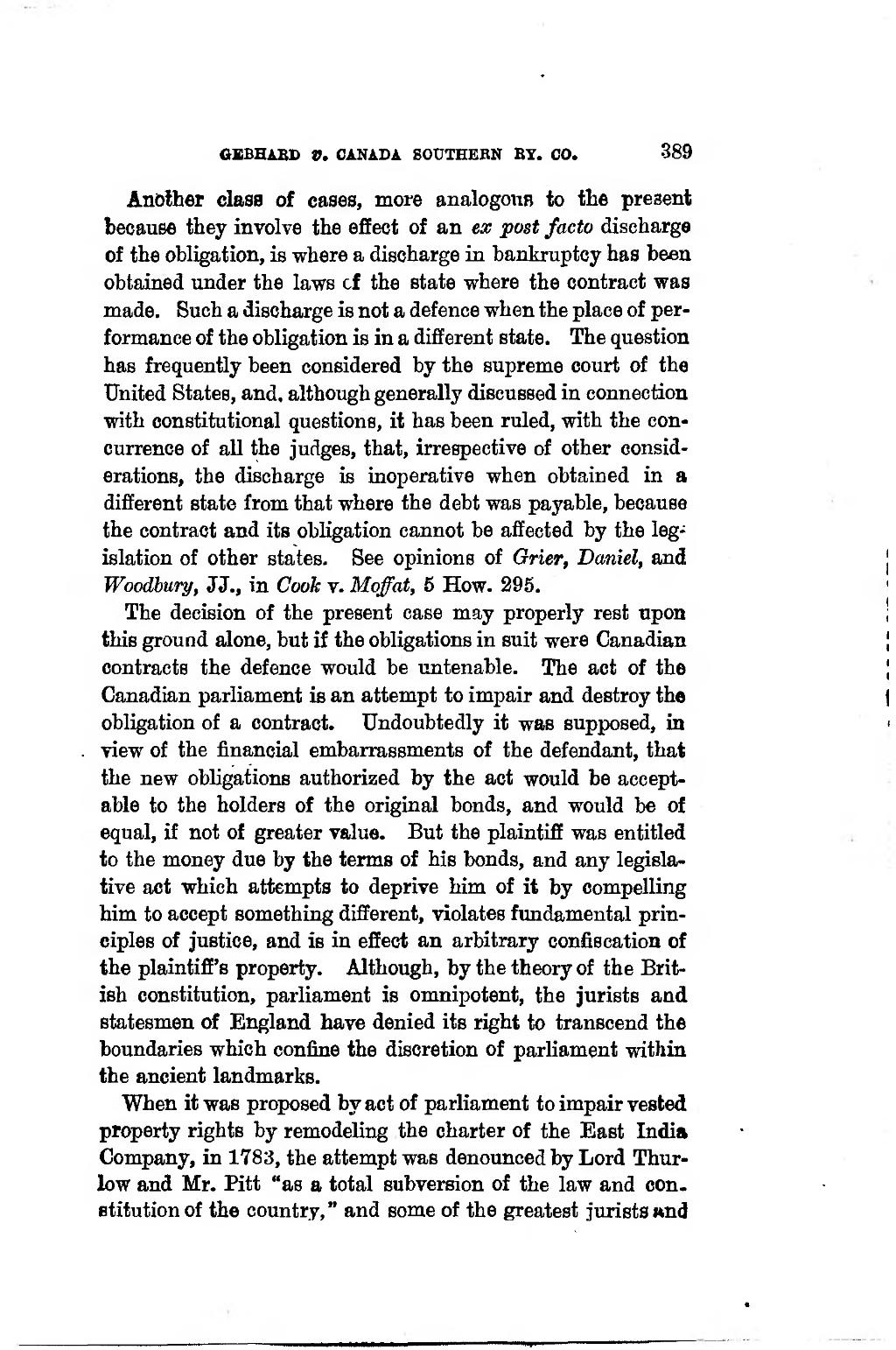OEBHàBD V. CANADA SOUTHEBN BY. 00. 389 �Anôther clasa of oases, more analogouB to the present because they involve the effect of an ex post facto discharge of the obligation, is where a discharge in bankruptcy has been obtained under the laws cf the state where the contract was made. Such a discharge is not a defence when the place of per- formance of the obligation is in a different state. The question has frequently been considered by the supreme court of the United States, and, although generally discussed in connection ■with constitutional questions, it has been ruled, with the con- currence of ail the judges, that, irrespective of other consid- erations, the discharge is inoperative when obtained in a different state from that where the debt was payable, because the contract and its obligation cannot be affected by the leg- islation of other states. See opinions of Grier, Daniel, and Woodhury, JJ,, in Cook v. Moffat, 5 How. 295. �The decision of the present case may properly rest upon this ground alone, but if the obligations in suit were Canadian contracts the defence would be untenable. The aot of the Canadian parliament is an attempt to impair and destroy the obligation of a contract. Undoubtedly it was supposed, in view of the financial embarrassments of the defendant, that the new obligations authorized by the act would be accept- able to the holders of the original bonds, and would be of equal, if not of greater value. But the plaintiff was entitled to the money due by the terms of his bonds, and any legisla- tive act which attempts to deprive him of it by compelling him to acoept something different, violates fundamental prin- ciples of justice, and is in effect an arbitrary confiscation of the plaintiff's property. Although, by the theory of the Brit- ish constitution, parliament is omnipotent, the jurists and statesmen of England have denied its right to transcend the boundaries which confine the discretion of parliament within the ancient landmarks. �When it was proposed by act of parliament to impair veated property rights by remodeling the charter of the East India Company, in 1783, the attempt was denounced by Lord Thur- low and Mr. Pitt "as a total subversion of the law and con. stitution of the country, " and some of the greatest jurists «nd ��� �
